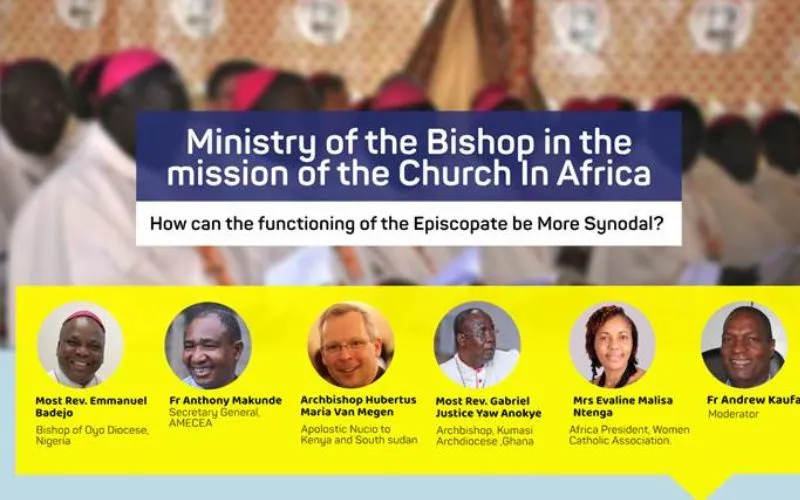Nairobi, 19 April, 2024 / 11:30 pm (ACI Africa).
Catholic Prelates cannot adequately fulfill their Episcopal Ministry if they ignore the virtue of listening, Archbishop Gabriel Justice Yaw Anokye of Ghana’s Catholic Archdiocese of Kumasi has said.
Archbishop Anokye, who was speaking during the Thursday, April 18 virtual conference organized under the theme, “Synod on Synodality: Ministry of bishop in the Mission of the Church in Africa”, emphasized the need for Catholic Prelates as well as all pastoral agents to listen to the Holy Spirit.
“Bishops in their ministry in the Church are obliged to tread that path of listening to be able to move together as one Church,” he said, and emphasized, “In the spirit of Synodality, in the spirit of journeying together, listening to ourselves, but especially listening to the Holy Spirit is imperative.”
The Ghanaian-born Catholic Archbishop further said that in listening to each other and to the Holy Spirit, Bishops and pastoral agents can know the needs of “those who have no voices, who have no defense. We are their mouths; we are their defenses.”
He cautioned against individual approaches to pastoral ministry, saying, “Collaboration in our mission as ministers of the word, Sacraments, of gospel values like peace, justice, fruitfulness, reconciliation, forgiveness, love, hard work, unity, is a categorical imperative.”








